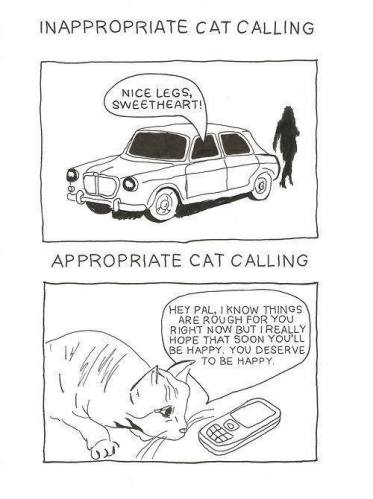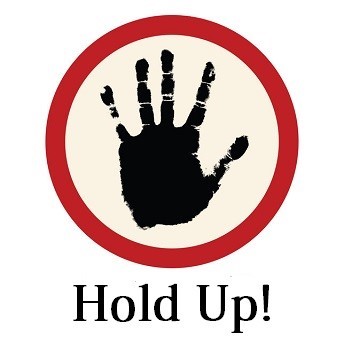(N.B. Now, I’m definitely not here to tell you what to do and it would be unrealistic of me to expect you to change your views according to my demands that you should not like catcalling. I’m simply here to highlight the issues with catcalling and the fact that we should be acting upon this form of sexual harassment. So …
For much of my life I have been afraid to wear shorts. In fact, when I was younger, anything that showed a little bit of skin was enough to make me wish for a perpetual winter so I could hide in my huge, ugly jumpers which I was also too self-conscious to be seen wearing in public. I would spend hours out of a day pulling down mini-skirts and hot pants. My flat-stomach which I thought was too ‘roll-y’ could not be seen in the light. I had hair that I wanted to get rid of to fit society but I stubbornness that tried to tell me not to because I was a beautiful creation and I was made just as I was meant.
I started experiencing catcalling in secondary school, but as a fresh rather well-groomed child (my mum was still brushing my teeth for me until I was about 10 and she still style me up until year 8), I had experienced my fair share of compliments. My parents’ friends would remark on my looks and make slightly envious comments. They meant nothing to me then and were rather flippant observations but they were the making of what I was to become; a very self-conscious individual who defined her worth on what others thought – something I am only now being able to get over.
The humble catcall; not quite so humble and not quite so feline, so what exactly is it? The Oxford Dictionary defines it as:
“A loud whistle or comment of a sexual nature made by a man to a passing woman.”[1]
 That’s right; straight away the dictionary sets this up as a gendered affair. And not only that, but also a sexually charged one. A more colourful and top-rated definition from the Urban Dictionary suggests:
That’s right; straight away the dictionary sets this up as a gendered affair. And not only that, but also a sexually charged one. A more colourful and top-rated definition from the Urban Dictionary suggests:
“When a guy gives the wert whirl whistle or yells at a babydoll for the purpose of getting attention and in hopes of a future hookup.”[2]
It adds: “99.9% a hookup never arises and it’s just the thrill that keeps these going.”[3]
We might as well just make that 100%. Ladies, please tell me when a guy’s catcalls have ever made you feel like you:
a) Wanted to have sex with him
b) Wanted to see him again
c) Didn’t feel like he completely just compartmentalised you and didn’t actually consider what your personality might actually be like.
Yeah, I’ve never really had a great experience with it either.
Despite my love of Skepta and as many lyrics of his that I know and sing along to, you will never hear me say that it’s actually alright for anyone to pull up in a blacked out Bentley, roll down the window and shout “Wah gwan, sexy!” Now the influence of songs like this in our popular culture is a debate for another time, but the fact still stands that this is wrong. Whether directed at a woman or man or anyone outside and in-between. You cannot legitimately say comments like this. Why? Because:
Catcalling ≠ Compliment
Catcalling is something I have experienced personally but I didn’t actually know too much about general opinion towards it when I was researching, apart from my assumption that every girl must hate it. In fact, my surprise came when I realised that I was wrong. Some people, Joanna Lumley and Sofía Vegara for example, enjoy it. In an interview with The EDIT, Vegara shockingly stated that she’s “never understood why women get so offended [by being objectified]. … I just don’t believe in all that drama, which is why I made a joke out of it. I am secure enough not to take it all that seriously.”[4]

As you can well imagine, my highlighter came out and I scrawled through her interview, underlining everything that I thought was rather misinformed on her behalf. Where do I even start?!
First of all I don’t think that catcalling is something that we should be taking lightly at all and our approach to it shouldn’t be whether we have thick enough skin to be able to ‘laugh it off’. Catcalling is a serious issue that comes under the broad concept of sexual harassment, which in the UK, is unlawful discrimination which the Equality Act 2010 protects you from.[5] The rhetoric that we live by more and more is the normalisation of sexual conduct and just general inappropriate behaviour. What right does someone have to tell you things about your body which make you feel uncomfortable, intimidated or violated? What kind of message are we spreading to women when we say they need to take it one the chin and that they shouldn’t make a fuss? It tells them that they are weak because they aren’t handling it. And if its women that are weak, then who really has the upper hand here? It’s the people doing the catcalling.

By normalising catcalling we are giving off signals that it is ok to treat women by compartmentalising them – sectioning them off piece by piece and objectifying what we see. By ignoring comments we tell people that they can continue with this behaviour and that there will be no repercussions for their rudeness (if you decide that that is all there is to it). By letting catcalls slide, we tell the world – young, vulnerable adolescents and strong, independent women alike – that if you are unhappy with what you hear and how you feel you are, to quote Vegara, making “drama”.
I think most worrying of all in Sofia Vegara’s comments towards the objectification of women is the question that we might all want to ask ourselves: what is the difference between catcalling and compliments?
Now, if I’m being honest, I do think that Sofia Vegara’s answer in The EDIT was not actually a call to induce the sexual harassment of women, but rather that she wanted to highlight that, as she gets older, she still wants other people to notice her beauty. It’s not catcalls that she wants, its compliments.
So what’s the difference?
A compliment is an expression of praise, commendation or admiration which is basically everything a catcall isn’t. A catcall is a remark of a sexual nature that comments on a specific part of someone’s body in the hope of getting to know more of their body. Not them. Their body.
And, yes, I WILL say it again for those of you that need to hear it:
YOU ARE NOT YOUR BODY.
You are a human. A beautifully complex and unique system with emotions, sensitivities, desires, fears, courage, spontaneity, passion, potential, compassion and purpose. You are more than the flesh on your bones and there is no end to the depth of your soul. A catcall does not, even in the slightest, highlight any of these wonderful qualities that are beyond superficial. If you want your worth to be heard, then let it be through genuine compliments from close friends, professors and family members not from a random person out of a car window who heckles you on the pavement whilst you try to shield yourself from the rain because you’ve worn a white t-shirt and didn’t want to wear a bra. (Totally acceptable by the way, perhaps even advisable. Wearing no bra that is – not the white t-shirt & rain combo).
I think one final thing that we also have to take into consideration with regards to catcalling is also this: not all catcalls are nice. Some calls that people make in the street are sometimes horrible and quite obviously derogatory. Being called a ‘slut’, for example, or ‘a fat cow’ or ‘too skinny’ or ‘lanky’ or a ‘MILF’. All of these are catcalls and we seem to more easily be able to recognise them than when they come concealed in a supposedly ‘complimentary’ package.
The idea of publicly parading women because of their bodies and essentially ranking them as ‘hot-or-not’ is a barbaric idea that even cavemen had enough intelligence and awareness of dignity to eliminate from their primitive society. Picture the scene:
A women walks down the street in whatever clothes she is comfortable in (remember, what you wear does not mean that you’re ‘asking for it’, which is what we are so often told in our society). A particularly self-conscious adolescent walks behind her. A man passes the first lady, wolf-whistling as he goes past. The lady passes no comment and walking with her head held high. The adolescent behind receives nothing. The youth mistakenly assumes that the lady has just received a highly-gratifying compliment. The adolescent returns home, disheartened, and begins her efforts to receive her first ever catcall.
As women we have an obligation to each other to stop prejudices against us which physically or mentally harm us. We are but a few steps away from attaining the value and recognition we deserve as able humans. Of course, it’s not only women that are affected by catcalls. It can be anyone for any reason based on their appearance. As humans we have a duty to each other in this sense. We must look out for each other and call out those who wrong us.
Make it your own personal duty to know the difference between a compliment and a catcall so that you can stand up for yourself and inspire others to stand up for themselves and others around them too!
*
(I am nowhere near done with this topic but I will shortly be posting on what an appropriate response to catcalling might be. Stay tuned!)

*
[1] https://en.oxforddictionaries.com/definition/catcall
[2] http://www.urbandictionary.com/define.php?term=cat%20call
[3] Ibid.
[4] https://www.refinery29.com/2016/02/102601/sofia-vegara-diversity-aging
[5] https://www.citizensadvice.org.uk/law-and-courts/discrimination/what-are-the-different-types-of-discrimination/sexual-harassment/
 That’s right; straight away the dictionary sets this up as a gendered affair. And not only that, but also a sexually charged one. A more colourful and top-rated definition from the Urban Dictionary suggests:
That’s right; straight away the dictionary sets this up as a gendered affair. And not only that, but also a sexually charged one. A more colourful and top-rated definition from the Urban Dictionary suggests:





